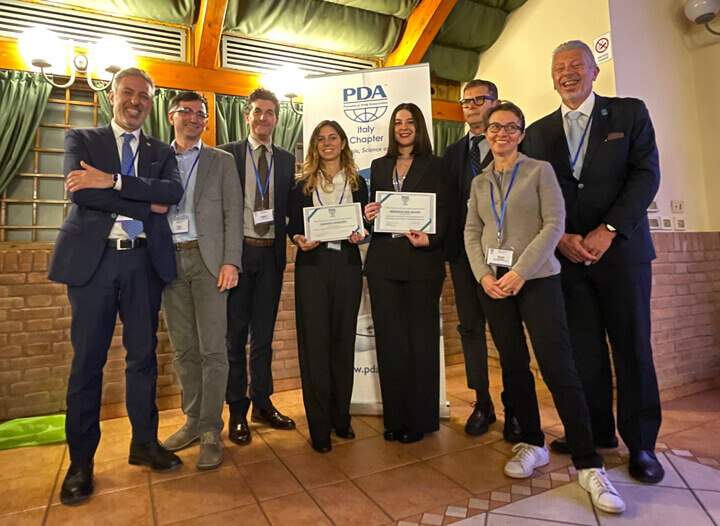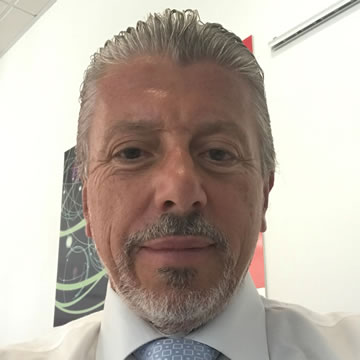PDA Italy Chapter Announces Student Awards
PDA Italy Chapter announced the winners of the first PDA Student Awards during the 2023 Annual Meeting Conference in Milan, Italy. Awards were recognized to member students in chemistry, pharmacy, pharmaceutical biotechnology, and related disciplines for their outstanding careers or undergraduate thesis in the field of bio/pharmaceutical manufacturing.
The award for the most outstanding student member was given to Stefano Sangiorgi, who demonstrated a distinguished career and is a resident of one of the municipalities impacted by the flood in May 2023 (a prerequisite for this award).
The second award was given to two member students, Georgia Frigerio and Immacolata Russo, who completed their master’s degree thesis in the last three years. They were honored with the award for the best master’s degree thesis, which recognized their contributions to the advancement of science and technology in the field of parenteral drugs.
Giorgia Frigerio obtained her degree in Pharmaceutical Biotechnology at the Università degli Studi di Milano in 2021 and is currently pursuing PhD program in pharmaceutical sciences. The scientific contribution entitled Short-term Stability of Lipid Nanoparticles in Pre-drawn Syringes deals with the stability of the lipid nanoparticles and the encapsulated mRNA in a "real-life" scenario. This work was considered innovative since, at the beginning of the mass vaccination campaign, it supported the hypothesis that vaccine doses can be safely prepared in a dedicated area using an aseptic technique and transferred to hubs without affecting their stability.
 Winners of the PDA Student Awards in Milan, Italy
Winners of the PDA Student Awards in Milan, Italy
Immacolata Russo completed her master’s degree in chemical and industrial pharmacy at the Università degli Studi di Chieti with a thesis entitled Detection of Endotoxins in Injectable Drugs Consisting of Lipid Nanoparticles and Low Endotoxin Recovery Effect. This contribution was considered relevant to the multidisciplinary field of parenteral drug products since nanocarriers and positively charged lipid nanoparticles can interact with endotoxins, causing false negative or false positive results. Therefore, the need to define ad-hoc protocols and run experiments to investigate this phenomenon is crucial to guarantee the safety of complex drug products.
All PDA members appreciated both winners' clear and precise 10-minute presentations, the scientific discussion around topics, and the interest highlighted by many questions that arose in the Q&A session. Glenn Wright, PDA President, joined the meeting in a phone call from the United States and congratulated the winners.



